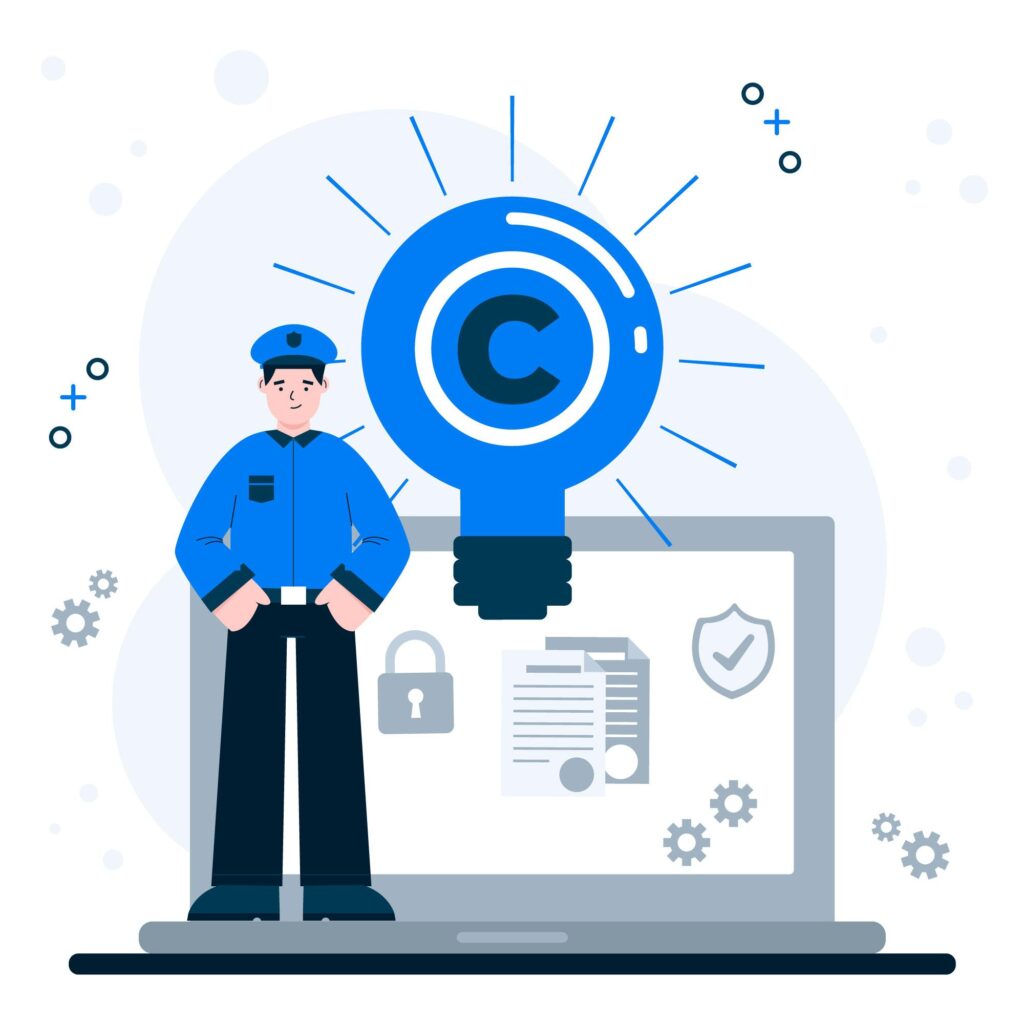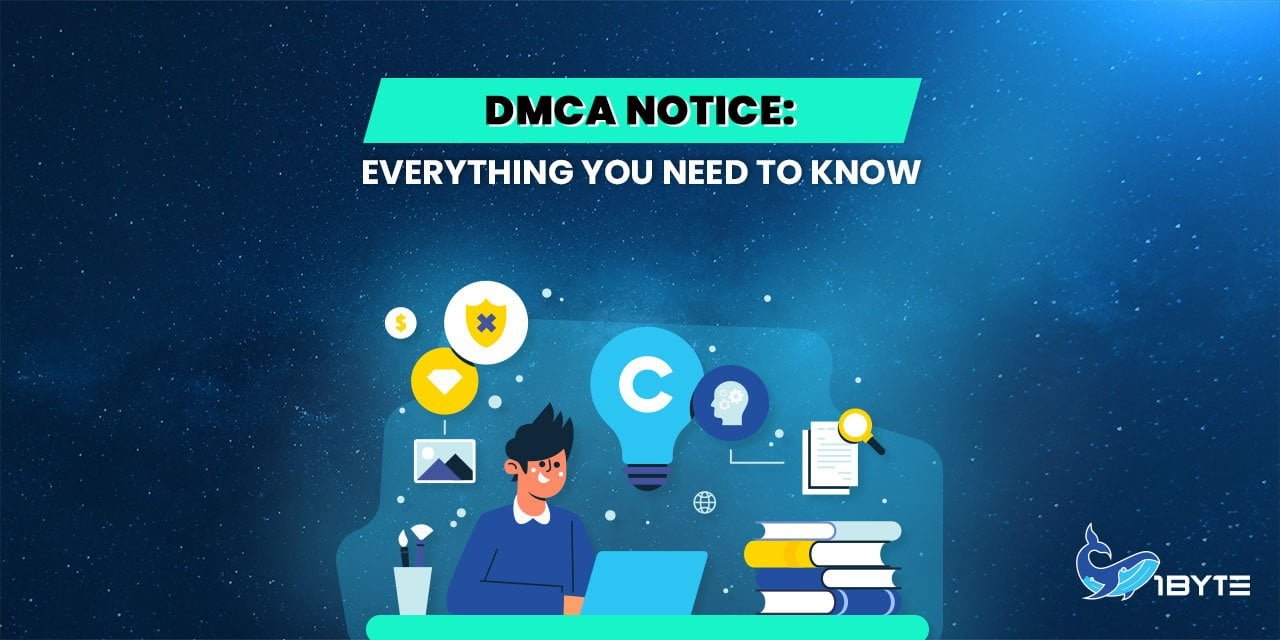Copyright infringement has become increasingly common in the digital age. With just a few clicks, anyone can copy and share content online. Unfortunately, this also means that it’s easy to accidentally infringe on someone else’s copyright, and you will likely receive a DMCA takedown notice. This can happen if you post copyrighted material on your website or social media account without the copyright owner’s permission. It can also happen if you share someone else’s copyrighted material without giving them proper credit. If you receive a DMCA takedown notice, don’t panic. Take some time to evaluate your options and make sure you respond appropriately.
What is a DMCA?
The DMCA, or Digital Millennium Copyright Act, is a law that was passed in 1998 in order to protect intellectual property rights in the digital age. According to the law, it is an unlawful act to use someone else’s copyrighted material without their permission, whether it’s on a website, blog, streaming channel, social media page, or any other digital format. Not only does this protect creators from having their work stolen, but it also protects websites and ISPs from being sued by the rightful owner of the content if it’s illegally posted on their site. When content is protected, the copyright owner has exclusive rights to it. For example, a musician’s article can only be distributed by her record company.

What is a DMCA takedown notice?
A DMCA takedown is when a copyright holder files a notice with an ISP or web host about copyright infringement. This notice says that the ISP or web host has to remove the materials that are infringing on their copyright. There are many ways for ISPs to remove content that violates a copyright. For instance, YouTube will mute or delete the music from your video, but it will usually leave the video up. Facebook will remove a copyrighted video from your timeline or newsfeed. Twitch will disable a stream from your channel, and so on.
Although the procedures differ slightly between platforms, they are all required by law to swiftly remove any material that violates a copyright. The Digital Millennium Copyright Act protects these service providers from lawsuits by copyright holders as long as they take prompt action to remove the infringing content.
If you receive a DMCA takedown, you’ll get a strike. Your account will be terminated after three strikes. If you knowingly and willingly post copyrighted material, you can be sued by the copyright owner and even face criminal prosecution.
FURTHER READING: |
1. DMCA Ignored Countries List |
2. What Is DMCA and What Does It Mean? |
What should you do if you receive a DMCA notice?
If you receive a DMCA notice, check if you actually did steal someone’s copyrighted material. If you did, remove the offending material from your website or blog as quickly as possible. If you have multiple websites where people share content, it may be impossible for you to track all the content and check for copyright infringements. Alternatively, you may have posted the content without a thorough understanding of how copyright works. Maybe you thought you had permission to post the material from someone who didn’t actually own the content. In any case, accept the DMCA notice as a caution and remove the infringing material immediately.
However, if you believe that you are using copyrighted material within the boundaries of fair use, you can try to contact the person who issued the notice and explain your situation. If they are not satisfied with your explanation, they may still demand that you remove the content. In this case, it is best to remove the content until both parties come to an agreement.
It’s also vital to take a close look at the notice and see if there are any inaccuracies. If the notice seems to be a mistake, you may be able to sort things out by contacting the person who sent the notice. However, if you believe that the notice is accurate and that your content has been stolen, you may need to take additional action in order to protect your rights.

How can you send a DMCA notice?
There are many ways that you can go about sending a DMCA notice. One option is to do it yourself. This isn’t too difficult, but it can be time-consuming, especially if you have a lot of content that is often infringed. Another option is to hire a DMCA notice service. This can be helpful if you don’t have time or energy to deal with copyright infringements yourself. If you choose to do it on your own, ensure that you follow the correct steps.
Identify the infringing material
The first step in sending a DMCA notice is to identify the infringing material. This can be a specific post on a website, an image, or a piece of content. Once you have located the infringing material, you will need to gather evidence that shows that you are the copyright owner. This can be a copy of your original work or a link to where it is published.
Writing and Sending the DMCA Notice
Once you have all the evidence, you will need to draft your notice. Before sending a DMCA notice, it’s important to make sure that you have the correct contact information for the web host or search engine. Most companies will have a dedicated page for abuse reports or DMCA notices. Once you have the correct contact information, you can prepare the notice. Your DMCA notice should:
- Include a signature (physical or electronic) of a person authorized to act on your behalf
- Identify the copyrighted work that has been infringed.
- Identify the location of the infringing material. This could be a specific URL or a social media profile.
- Include your name and contact information to give the provider the authority to contact you or your agent directly.
- Include a statement in your claim that you have good faith reason to believe that the material is not authorized for use by the copyright owner, its agent, or the law.
- Include a statement under penalty of perjury stating that the information in the notification is true and that your agent has your permission to act on your behalf.
Hiring an Agent to Issue the Notice
It’s not hard to write a DMCA notice by yourself, but if you’re sending a lot of content, it is likely that you’ll have to send many DMCA Notices. Hiring a third-party service would do your copyright a great deal of good.
Concentrating on guarding your copyrights by hiring an agent to help you with DMCA notifications can save you much time and protect your content. An agent can assist you in monitoring your content and will prompt you of any questionable occurrences.
Leverage 1Byte’s strong cloud computing expertise to boost your business in a big way
1Byte provides complete domain registration services that include dedicated support staff, educated customer care, reasonable costs, as well as a domain price search tool.
Elevate your online security with 1Byte's SSL Service. Unparalleled protection, seamless integration, and peace of mind for your digital journey.
No matter the cloud server package you pick, you can rely on 1Byte for dependability, privacy, security, and a stress-free experience that is essential for successful businesses.
Choosing us as your shared hosting provider allows you to get excellent value for your money while enjoying the same level of quality and functionality as more expensive options.
Through highly flexible programs, 1Byte's cutting-edge cloud hosting gives great solutions to small and medium-sized businesses faster, more securely, and at reduced costs.
Stay ahead of the competition with 1Byte's innovative WordPress hosting services. Our feature-rich plans and unmatched reliability ensure your website stands out and delivers an unforgettable user experience.
As an official AWS Partner, one of our primary responsibilities is to assist businesses in modernizing their operations and make the most of their journeys to the cloud with AWS.
Conclusion
In conclusion, the DMCA is an important part of copyright law. It protects creators and helps to ensure that their work is not used without permission. If you are a creator, it is important to understand the DMCA and how it can protect your work.

